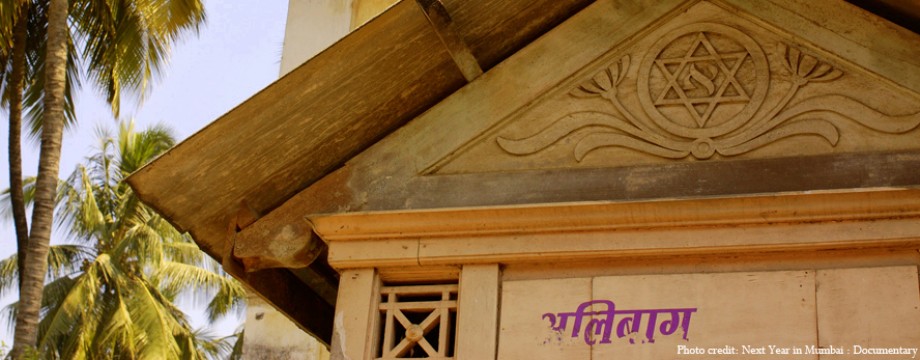When Tzvi Khaute landed at Tel Aviv for the first time, he wanted to kiss the earth. Alas, the modern airport was all tarmac and stone, so he kissed the first soil he came across, in a flowerpot. Thousands of diaspora Jews from around the world make aliyah — the migration to Israel — every year, but for Tzvi and his fellow Tibeto-Burmese immigrants from the far northeast of India, the journey was particular freighted with symbolism. They believe they are descendants of one of the ten lost tribes of Israel, sent into exile by the Assyrians almost 800 years before the Romans destroyed the temple in Jerusalem.
About 1,700 members of the Bnei Menashe tribe — the Sons of Manasseh, one of the original 12 biblical tribes of Israel — have migrated to Israel, completing what they believe is an extraordinary, 2,700-year exile that took them from the Middle East seven centuries before the Christian era, through Afghanistan, China, Burma and India, before they heard that a new state of Israel had been created 62 years ago.
“A hundred years ago, my forefathers thought the land of Israel was not on this earth, they thought it was something in heaven,” said Mr Khaute, a smiling 35-year-old wearing a kippa, or skullcap. In India, about 7,000 more are waiting for the green light to close the circle of almost three millennia.
The Bnei Menashe, then known as the Shinlung or Kuki people, were discovered in their remote home in the India-Burma border state of Manipur by Christian missionaries at the end of the 19th century. They were surprised to find that the natives already seemed to know some of the biblical stories they taught, while local people believed they had rediscovered the religion told about in their traditions relating to a long-lost ancestor. Many converted to Christianity, but in recent decades have begun switching their faith to Judaism, a creed that was not yet fully formed when their ancestors left the Middle East.
Mr Khaute recites a song in the Kuki language, which he said translated as “Quick, quick into Zion” and he and his friends used to sing as children, at one of a number of festivals that they say point to their ancient Israelite heritage. They believe it relates to the biblical escape from Egypt.
According to Bnei Menashe lore, the tribe escaped from Assyrian slavery and headed east, through Ancient Persia, Afghanistan and Tibet, to settle for a time in China, where they were once again persecuted and expelled in about AD100. From there, they trickled in smaller groups into South-East Asia, where they remained until this day.
It was only when the state of Israel was created in 1948 that some of the Bnei Menashe began to believe they were descended from Ancient Israelites and started dreaming of return. That process accelerated when one of their members had a vision instructing him to lead his people back to the land of their ancestors, whom he judged to be original Israelites.
Some made aliyah individually, but it was not easy, as under rabbinical laws they were no longer Jewish, after generations of co-mingling with other nations. It was not until an Israeli non-governmental organisation was set up to help to repatriate them that they started to arrive in larger numbers, although there is still no government policy allowing full-scale migrations, as happened with the Ethiopian Jews in the 1980s. The group, now headed by Michael Freund, a US-Israeli journalist, lobbied one of Israel’s chief rabbis to send a fact-finding mission to India in 2004, and as a result a year later the Bnei Menashe were recognised officially as being descendants of Israel.
Mr Freund said that the Bnei Menashe had many rituals and ceremonies that resembled those of Ancient Israel, though significantly none that reflected the holidays of Purim and Chanukkah, as they mark events in the Bible that occurred after the ten tribes were lost to the Assyrian invaders.
Seminary schools were set up by Mr Freund’s group in India to teach Judaism and Hebrew to speed up the process, but that programme was halted when the Indian Government objected to what it saw as missionary activity. Now, the Bnei Menashe are trickling into Israel on tourist visas to convert and gain citizenship.
“We decided the system was unmanageable at 100 people a year for a community of 7,000 people,” Mr Freund, who heads Shavei Israel, or Return to Israel, said. “We have begun lobbying for permission for the entire community to come here.”
The project has run into criticism, with detractors condemning the fact that many, such as Mr Khaute, were sent to hardline Jewish settlements in the West Bank, Kiryat Arba, in Hebron. But Mr Freund said that without government support, the settlements were the only communities willing to accommodate the new arrivals.
The Bnei Menashe are not the only unrecognised Jews Mr Freund’s group is in contact with. They also support the “lost Jews” of Poland, offspring of Jewish parents who gave their children to Catholic institutions in the Nazi invasion for safekeeping, and who subsequently never knew their heritage.
To see the original source and author of this please go to this URL:
http://www.timesonline.co.uk/tol/news/world/middle_east/article7108970.ece

